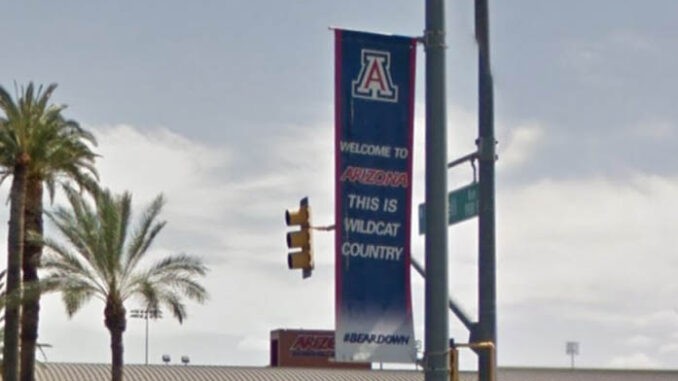
TUCSON – As you’re enjoying Thanksgiving leftovers, please remember the hungry, especially, the 45,000 students at the University of Arizona in Tucson, one-third of whom have “food insecurity.”
How do I know that a third have food insecurity? Because local KOLD-TV aired a “news” segment before Thanksgiving in which a member of the student council said so. Certainly, degreed journalists and their editors would never air an unsubstantiated statistic; nor would a student leader who has risen to the top of the student body.
I don’t want to be seen as “sleep” instead of “woke” about body shaming, but the student in question didn’t look deprived of calories. Chances are, she eats every meal at one of the scores of fat-food joints in the food court of the student union or one of the off-campus fat-food joints that ring the university—joints that generate tons of plastic and paper that litter the streets, where environmentally-woke students step over it instead of picking it up.
Granted, my son had food insecurity when he got two engineering degrees at the University of Arizona, where he was a resident hall assistant (a k a dormitory proctor) before moving off-campus. The dorm is so old that it is on the National Historic Register. Student rooms were the size of prison cells, and the communal bathrooms on each floor, which were unchanged since the 1930s, were designed for maximum shower insecurity. The dorm was the opposite of the many swank dorms on campus with private bathrooms.
My son’s food insecurity stemmed from being the only resident who used the dorm’s communal kitchen to keep food in the refrigerator and prepare meals for himself. You see, he had to endure the stress of taking a public bus to a supermarket and then shopping hurriedly so he didn’t miss a return bus and have his perishable items cook in the desert heat. He also experienced the anxiety of encountering deranged people on the bus.
I could empathize with him about public transit, because I also encountered deranged people when I took public transit in Chicago for nine years. And I had so much food insecurity in college that, among other jobs, I was a shelf-stocker and checker in a supermarket and a bartender in a restaurant. That way, food was always within reach.
I graduated with two degrees and no student loan debt, just as my son did. No doubt, this lack of indebtedness was due to my olive-skin privilege, which I inherited from my grandparents and parents.
My fraternal granddad was a coal miner upon emigrating from Italy and then was a barkeep after moving from the coalfields of southern Illinois to St. Louis, where he and Grandma lived in a two-flat. My aunt and uncle and their five kids lived in the downstairs flat, which had one bathroom and two bedrooms. Due to their food insecurity, a vegetable garden took up every square inch of the tiny backyard.
When money was tight, Grandpa would pick mushrooms in the woods of a nearby city park, and grandma would catch pigeons on the window sill.
I never knew my maternal grandparents, because my mom was orphaned as an infant and raised by her aunt and uncle, who lived in a four-flat without a car, on a waiter’s pay. My mom’s aunt, who was Nonna to me, would walk blocks every day to a market, where she bought fresh ingredients to make the most delicious peasant food imaginable.
My dad was a tile setter like my uncle, and he and my mom had a vegetable garden in our tiny backyard, probably due to food insecurity passed down to them through family genes.
A closing note about white privilege: A couple of blocks from the University of Arizona campus is a park where the homeless hang out. The vast majority of them are white, as is the case with most of the homeless throughout the city. Many of them are addicted to drugs and/or have psychological problems. Judging by their emaciated appearance, most have true food insecurity.
There’s something amiss in a society that lets people live and die on the street like animals while plump and pampered college students whine about food insecurity.
